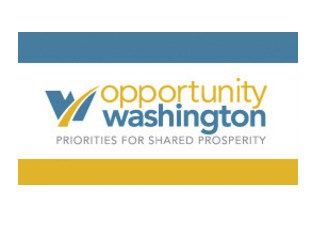Recently, Chinese President Xi Jinping visited our region, meeting with business, civic and political leaders from Everett to Seattle, Bellevue and Tacoma. Years ago, this might have been a statement that our region had come of age, taking a prominent role on the world stage.
This visit, however, represents an affirmation, not an announcement. The central Puget Sound region and Washington have long been a center of global trade.
A look behind the numbers, however, reveals that many Washingtonians are falling behind. And far too many young people fail to get the education they need to succeed and compete for great jobs being created by Washington employers.
To address those concerns, a year ago we organized Opportunity Washington, a statewide coalition of business and civic groups. We traveled the state, meeting with educators, small business owners and business leaders. We asked them — what changes are most needed?
From these conversations and our own research, three priorities rose to the forefront — things we must do well to ensure all Washingtonians can take advantage of great career and life opportunities. We categorized them as “Achieve,” for education quality and outcomes; “Connect,” for transportation and infrastructure reliability and efficiency; and “Employ,” for economic vitality.
We called our report a roadmap for expanding opportunity and we laid out a plan for improving Washington’s performance in each category. It’s not enough, though, to draw a map. There must be a reliable way to determine where we are, where we’re headed and measure progress.
To that end, we have calculated a new “opportunity score” for each state, measuring performance on Achieve (education), Connect (transportation) and Employ (economic vitality). The analysis relies on 16 variables, with data drawn from respected national sources.
So, where does Washington stand after the analysis? Stuck in the middle, ranking 24th among all states. Good enough? No. We should be in the top 10.
Currently, Washington ranks 18th in Achieve (education). While we do reasonably well on fourth-grade reading and eighth-grade math, as well as associate degrees awarded, our high school graduation rate ranks very near the bottom 10 states. We also perform below the median state for production of bachelor’s and advanced degrees.
It won’t surprise commuters to learn that Washington ranks 38th in Connect (transportation). The transportation package passed by the Legislature this year should improve Washington’s performance.
On Employ (economic vitality), Washington again ranks in the middle, coming in 23rd.
Strong performance in private R&D investment and entrepreneurial activity is offset by higher-than-average business costs such as unemployment insurance and business taxes.
No one sets out to be average. Washington can and must do better.
Becoming a top 10 state will take a sustained commitment with frequent benchmarking. We will update opportunity scores for Washington and all 50 states quarterly, allowing us to track progress and assess opportunities for improvement.
It’s great to be a world leader, as Washington is in many ways. We must take this opportunity, however, to create the conditions that will offer everyone in this region and every community in our state, the tools and capacity to prosper. Together, we can achieve that goal.
Join our effort at Opportunitywa.org.
Steve Mullin is president of the Washington Roundtable. Kris Johnson is the president of the Association of Washington Business.



